- Home »
- Learningcenter »
- What metal roof gauge
What Metal Roof Gauge Do You Need? 22 vs. 24 vs. 26 vs. 29
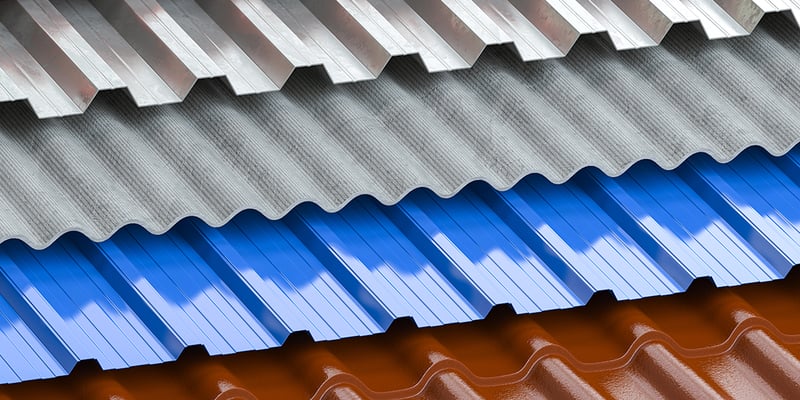
Metal roofs are durable, long-lasting, low-maintenance roofing systems that also provide energy efficiency benefits.
If there you are thinking of replacing your roof with a metal roof, there are a number of decisions you’ll want to make: standing seam versus screw down, the type of metal, and the thickness of the metal.
Metal roofs come in a wide variety of gauges (thicknesses)– ranging from 22 (the thickest) to 29 (the thinnest.)
What metal roof gauge do you need? What are the pros and cons of each of the most popular metal roof thicknesses? Let’s take a look at what you need to know.
Why Does the Gauge of Your Metal Roof Matter?
The thickness of metal roof panels is expressed using the term “gauge” by manufacturers in the United States. The thickest available gauge is 22 gauge, while the thinnest available gauge is 29 gauge. The most popular options are 22, 24, 26, and 29.
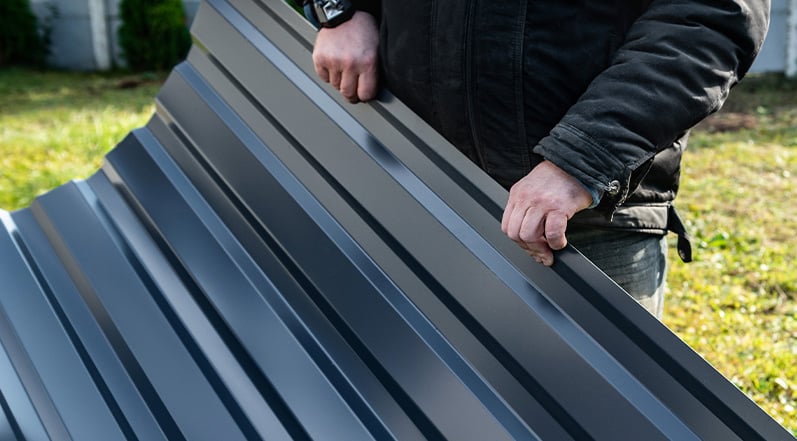
Out of these four gauges, 24 gauge and 26 gauge are the most widely used. There are pros and cons to each metal panel thickness, and depending on your structure and preferences, you will likely find one best suited to your needs and budget.
Comparing the Pros and Cons of Different Metal Roof Gauges: 22 vs. 24 vs. 26 vs. 29
As you might expect, the thickest metal roofing panels are going to be more expensive than the thinnest metal roofing panels. Though one might assume that having thicker materials is always the best option, how thick your metal roofing panels need to be depends on your structure, location, and other factors. In some cases, paying more for 22-gauge metal panels could be an unnecessary expense.
22-Gauge
There are a number of reasons that homeowners and business owners might select a 22-gauge metal roof, which measures at .0299 inches.
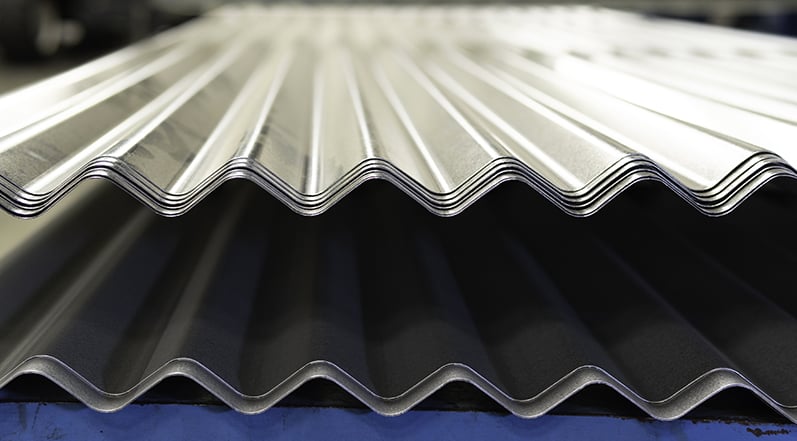
These include:
- ● Offering more protection for certain building types
- ● Durability against severe weather conditions, high winds, and heavy snow
On the other hand, the major drawback of 22-gauge metal roofs is the cost. Since it is the thickest, it is usually the most expensive metal roof you can get.
24-Gauge
One of the most popular metal roofing panel gauges, along with 26-gauge, 24-gauge (.023 inches) offers a number of benefits, including:
- ● Durability against extreme weather
- ● Maintaining its appearance for years to come without “oil canning”
Oil canning is purely aesthetic and not functional, but when investing in your roof, you want to know that it will look nice for the long-term. Essentially, with thinner panels, a bubbling effect can occur due to the panels being fastened too tightly, eventually giving the roof a “wavy” appearance.
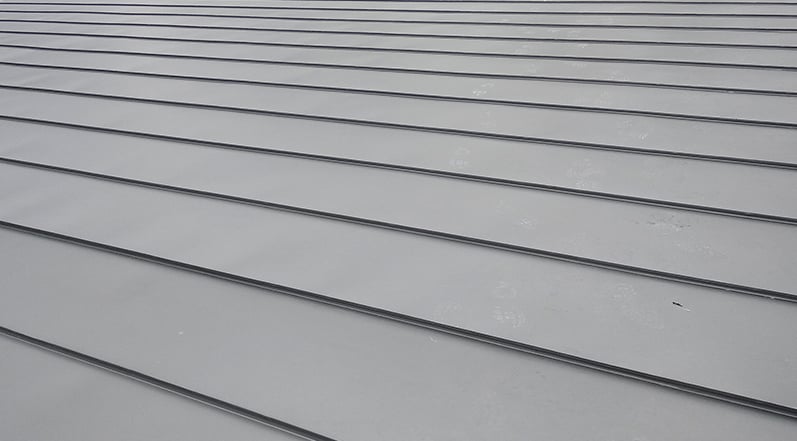
On the other hand, 24-gauge metal roofing is still going to be more expensive than other, thinner options because of their thickness.
26-Gauge
The other most popular metal roof thickness, along with 24-gauge, 26-gauge panels (measuring between .0170 and .0217 inches) is the industry standard for most residential applications as well as commercial applications.
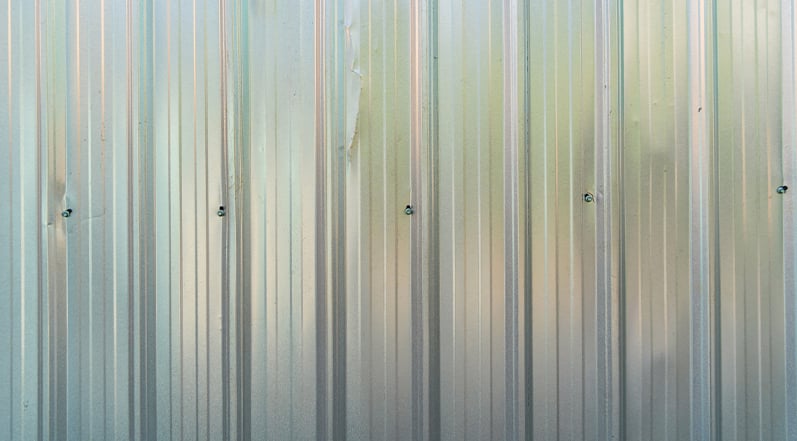
The benefits of this type of metal roofing include:
- ● More cost-effective than 22 and 24-gauge metal roofing
- ● Thicker, more durable, and more structurally sound than 29 gauge metal roofing
On the flip side, 26-gauge metal roofing can be susceptible to “oil canning” if the fasteners are secured too tightly. As mentioned earlier in the article, this can result in a bubbling and eventual wavy appearance in the roof that is not functionally a problem but not as nice looking. Beyond that, 26-gauge panels aren’t always the best choice if you live in a location where there are extreme weather conditions or frequent high winds, as they aren’t as durable as the thicker panel options.
If you are interested in metal roof tiles, it’s worth noting that they are typically made from standard 26-gauge steel.
29-Gauge
Finally, we come to the thinnest metal panel option– 29 gauge, which ranges between .014 inches and .018 inches.
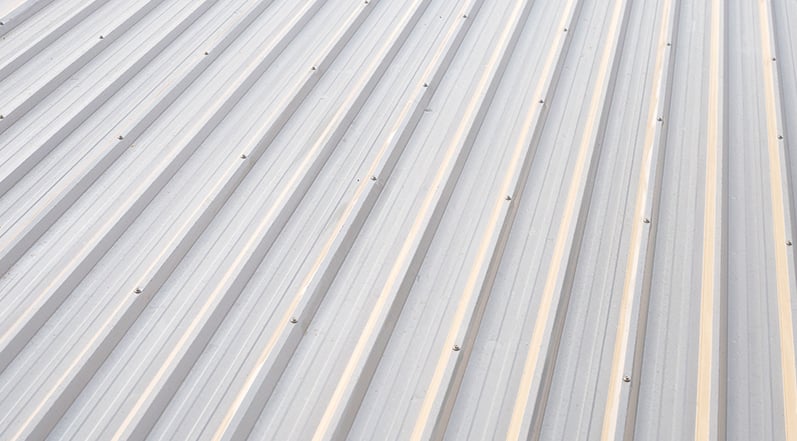
Though you might be inclined to think that thicker is always better, there are some benefits to this type of metal roofing material:
- ● This is usually the cheapest type of metal roofing material because it is also the thinnest
- ● Many residential homeowners might find that 29-gauge panels are more than sufficient for their home
If your home is in a location where you commonly experience extreme weather, though, 29 gauge might not be durable enough to offer complete protection for your home.
When Are Thicker Panels a Good Idea?
Thicker panels can be better for some structures, locations, and building owners, but not always.
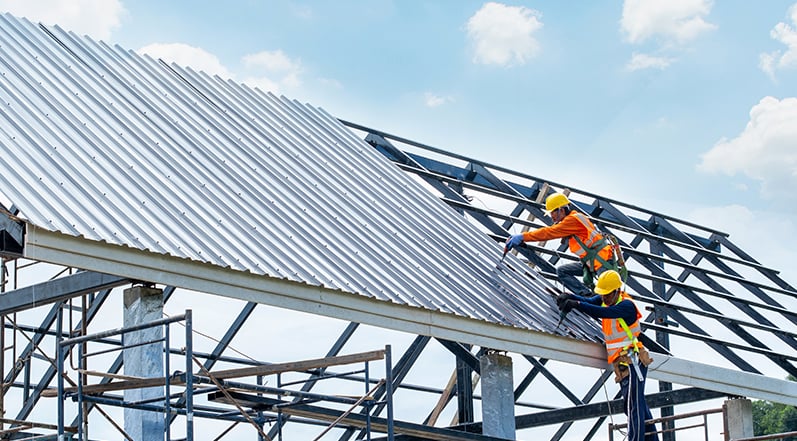
For example, if you have a garage, warehouse, barn, or other open-framed structure that doesn’t have structural sheathing, thicker roof panels will likely be the right option.
When Are Thinner Panels a Good Idea?
In the United States, most residential homes will have a layer of decking underneath a barrier that is weather-resistant. When installing metal roofing, the panels can be affixed to the decking in a way that does not require them to play a structural role.
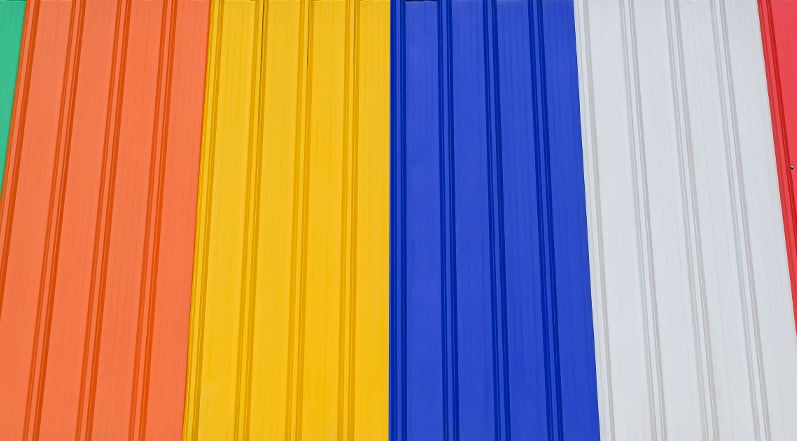
In these instances, you might find that 29 gauge is completely adequate for your home. This can be particularly true if you live in a mild climate where you do not commonly face extreme weather conditions. However, if hail is a somewhat regular occurrence where you live, a thicker gauge is likely the better choice.
What Factors Impact the Metal Roof Gauge I Need?
There are a variety of factors that will influence the right metal roof gauge for you. A professional roofing contractor will be able to offer a free estimate for replacing your existing roof with a metal roof, during which time they can help you understand what the best options are when it comes to panel thickness.
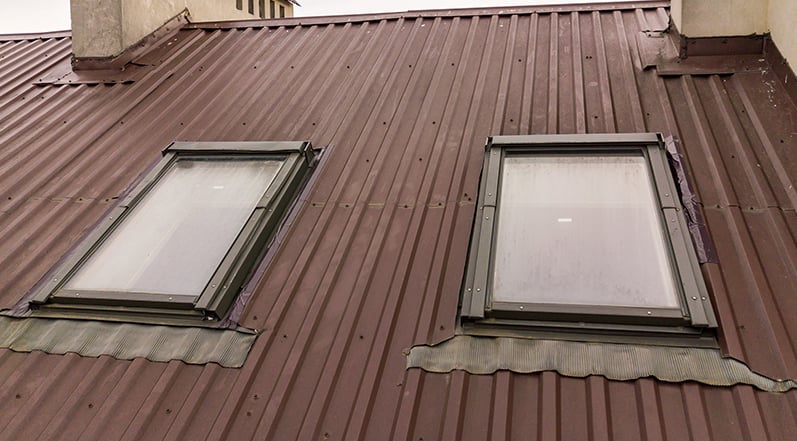
That being said, the following elements should be considered when selecting a metal roof gauge:
- ● The slope of your roof
- ● The temperature ranges in your area
- ● Your environment and climate
- ● The roof structure
- ● Load capacities (how much weight the material can withstand)
- ● Dead load (whether your building can support the weight of the material)
- ● Your budget
Applying a roof coating to your metal roof can help make your metal roof last longer, be more energy efficient, and be more durable. You can learn more about metal roof coatings in this article.
Metal Roof Gauge FAQ
Before we sign off, let’s take a look at some of the most frequently asked questions about selecting a metal roof gauge for your home or business.
How Does the Climate in My Area Affect the Metal Roof Gauge I Choose?
Metal roofs are known for having impressively high-performing characteristics. However, the climate you live in can impact how well metal roofing material will perform in its purpose of protecting your home or building.
Thicker gauge panels might be required if you live in a region that is prone to hail, as hailstorms can be significantly detrimental to your entire roofing system. 26-gauge is usually recommended for buildings in locations where hail is common to resist potential punctures from hailstones.
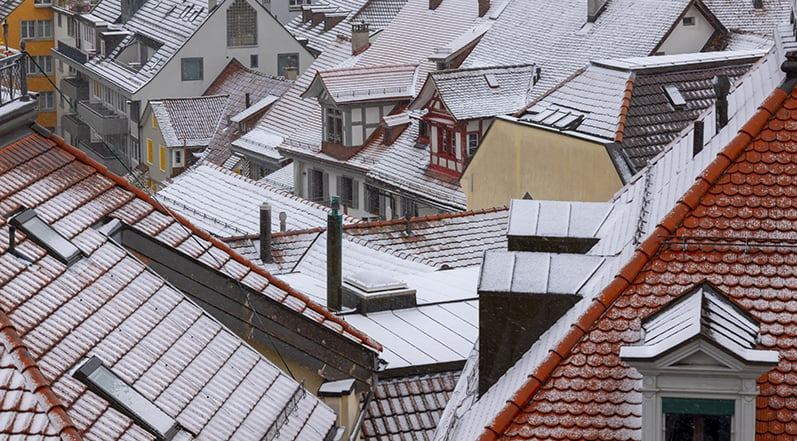
Similarly, thicker panels will be more durable in places that experience extreme weather conditions or high wind. At the same time, most residential structures will not require the thickest option on the market– 22-gauge metal panels.
Can a Metal Roof Be Used on Flat or Low-Sloped Roofs?
If you have a flat or low-sloped roof, you might be wondering whether you will be able to replace your roof with a metal roofing system. There are two different types of metal roofing systems that are commonly installed on flat or low-sloped roofs, which are standing seam metal roofs and screw-down metal roofs.
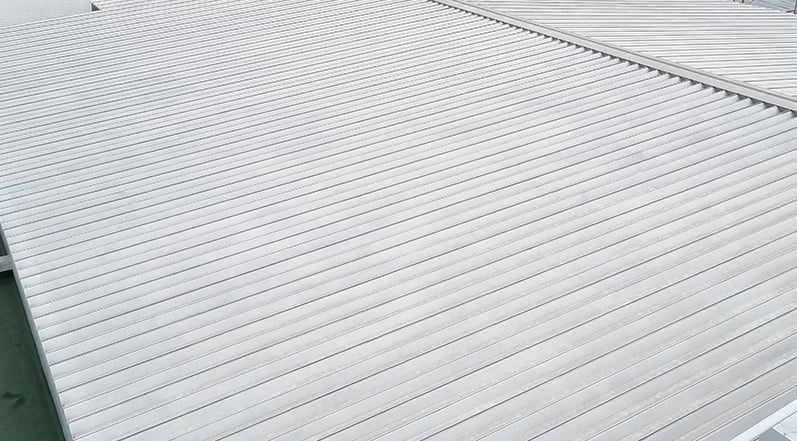
Standing seam roofs are usually the go-to choice for heated living or workspaces. These are very low-maintenance systems with the expansion capability to cover a heated space.
Screw-down systems, on the other hand, can be sufficient for non-heated spaces. It generally isn’t advised to use them on heated spaces, though, because they don’t have the expansion capability of standing seam metal roofs. You can choose to still go this route, but you will have to replace the screws with some regularity in order to avoid water penetration and leaks.
Is a Metal Roof Really Worth the Cost?
Whether or not a metal roof is worth the expense is going to depend on what your priorities are. That being said, they are a great choice if you are interested in a durable, energy-efficient option that requires minimal maintenance.
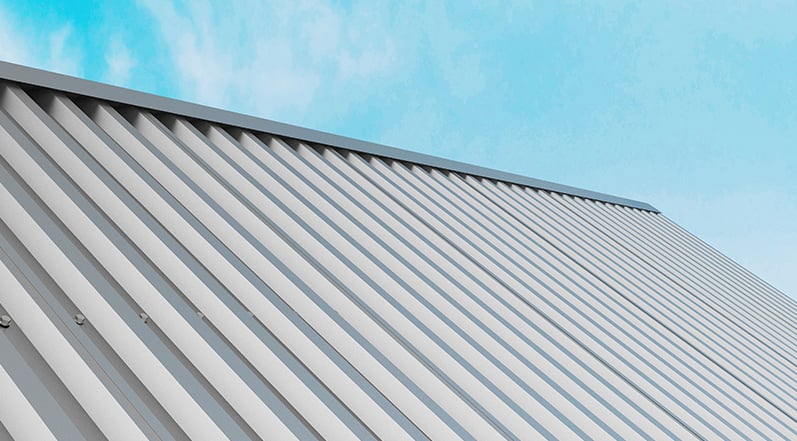
Some of the benefits of metal roofs include:
- ● Durability: Metal is an excellent choice if you are looking for a material that will be able to withstand the elements. Thanks to rust-proof coatings, you can also ensure that your roof won’t crack or corrode.
- ● Longevity: Though metal roofs are more expensive, they can last for forty to seventy years or even longer. They also usually come with a manufacturer’s warranty of 30 to 50 years. Compared to a traditional asphalt roof with a lifespan between 12 and 20 years, this means that you won’t have to worry about replacing your roof for a long time.
- ● Energy efficiency: Metal roofs are considered a sustainable roofing option compared to other popular choices because they are great for solar panels and rainwater catchment systems. Additionally, they usually consist of 25%-95% recycled materials, and if the day ever comes when you replace your metal roof, they are 100% recyclable. Finally, cool metal roofing systems can reduce your energy usage, saving you money on your cooling bills and reducing wear and tear on your AC.
- ● Safety: Metal roofs are a safe option in areas prone to lightning strikes or wildfires as they won’t spark and ignite into flames.
- ● Aesthetics: Metal roofs have come a long way in recent decades– you have lots of choices when it comes to colors, finishes, styles, and more. A modern option that can look great on a home or building, metal roofs are certainly stylish.
Of course, there are also some downsides to metal roofs. Some of the drawbacks include:
- ● Cost: The cost of installing a metal roof can cost as much as two or three times more than other common roofing systems. While they have a much longer lifespan than other roofing materials in a way that can make them cost-effective over the life of the roof, it’s still a big investment upfront.
- ● Dentability: Depending on the gauge of metal roofing panel you choose and the type of metal, your metal roof might be more or less susceptible to dents due to falling branches or large hail. You can mitigate this risk through your gauge choice as well as through the material you choose– for example, steel is much less susceptible to damage than copper and aluminum.
- ● Noise: Depending on the type of sheathing you have installed on your roofing system, the noisiness of your roof during heavy rain or hailstorms can vary tremendously. Additional insulation in your attic can also help to rectify this issue.
- ● Performance: If your metal roof isn’t installed properly, it can open your roofing system to water accumulation. The type of metal you choose and the gauge can also impact the durability and whether or not your roof is prone to rust or dents.
- ● Color match inconsistency: When you have to repair your roof, or you are adding on to your building several years down the road, it isn’t always possible to get a precise color match for your metal roof.
For more information about the cost of a metal roof in 2023, check out our guide on metal roof pricing.
Are You Considering Installing a Metal Roof?
If you are interested in benefitting from the durable, long-lasting, low-maintenance qualities of a metal roof, we are here to help. At Colony Roofers, we pride ourselves in offering the highest quality roofs for the most affordable prices in the greater Atlanta area. Our team is hand selected for their work ethic, integrity, and experience, and our customer service is the best in the business.
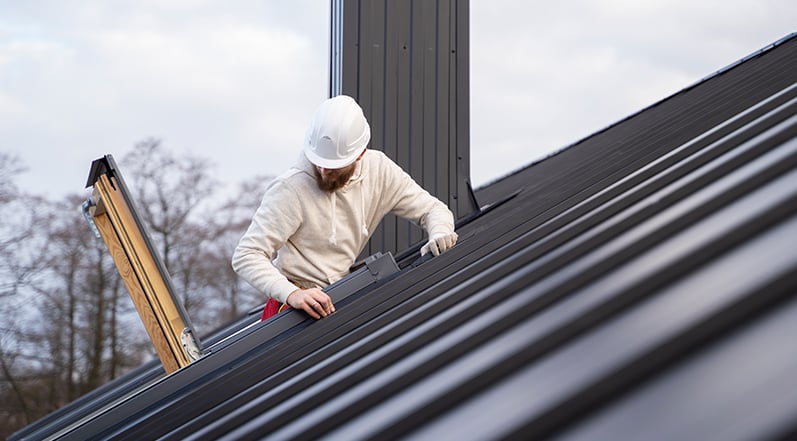
There are a number of factors that you will want to take into account when selecting your metal roof gauge, including the type of structure, the weather, your budget, and more. We would be more than happy to come out to take a look at your roof and discuss what your options are. If this all sounds good to you, contact us today to schedule a free estimate.
 Call (678) 365-3138
Call (678) 365-3138



